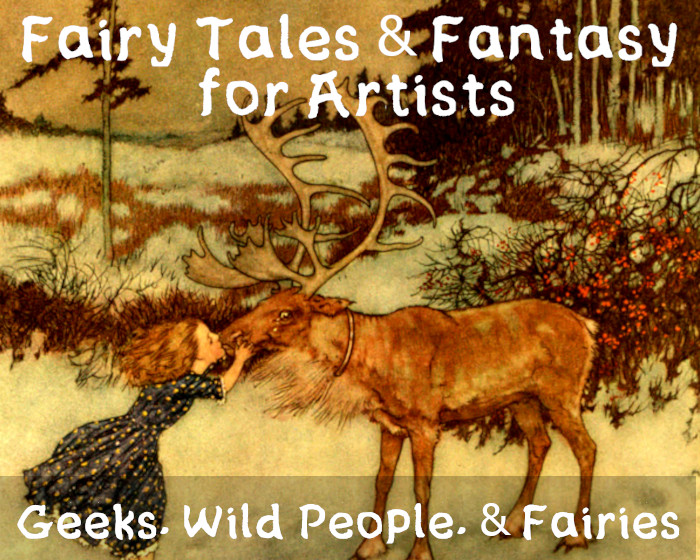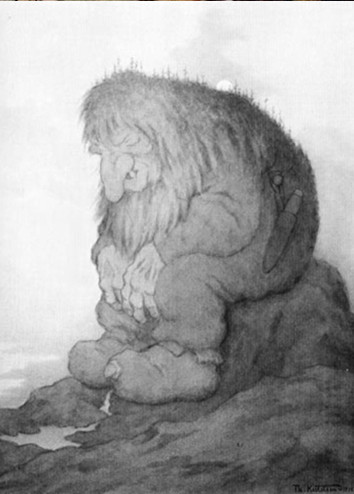by Ty Hulse
Because most fantasy stories use imaginative and dreamlike narratives to show characters that escape the restraints of their society, they often attract the attention of those who live on the emotional frontiers of society. It is no wonder then that the word for those who love fantasy stories to an abnormal degree ‘Geek’, was originally a term for a wild person, someone who lived on the fringes of society. Indeed, it was still used that way in the 1970s such that a low budget porn film which featured Bigfoot was released titled “Geek”. This wasn’t a slam on the people who would later be called geeks, the masters of technology and the readers of fantasy worlds. This film used the word as another name for bigfoots, people living on the fringes, or circus freaks. In the “Wildmen on the Cyberfrontier” Buhs writes that “The geek is an update of an ancient type – the wild man.” In the 1970s and 80s, geeks began to fill the roles that fey and wildmen of folklore once had. Folktales and rumors spread of them, and their interests became things to fear. Computer Geeks, the first people who were called geeks had magical powers through the use of the computers. Computers which it was believed would destroy jobs, ruin our culture, and ultimately endanger us all. The tech revolution was referred to with similar terms that the cannibal and the dangerous wilderness once had been.
Computer Geeks were often seen as “dangerous, amoral boys who threatened the struggling middle class… many of them adopted punkish dress. .. like the wildmen that came before them geeks were often only known by ‘a vaporous trail of footprints,’ invisibility being one more reason to be frightened [of them].”Geeks were seen as having powers beyond mere mortals, drivers of the economies on which the modern world was dependent, yet also troublemakers who could use computers to pilfer money and cause mischief. This status of clever social outsiders was extended to include the readers of imaginative art, for the greatest function of such art is helping people through their struggles.
It makes sense than that at this time those who loved fantasy would have similar terminology applied to them. After all, in the 80s and the early 90s those who played Dungeons and Dragons were believed to be dangerous, and threatening. Police, psychologist and reporters investigated those who loved fantasy and the impact their interests had on them and society as a whole. Of course, the fears of these people were unfounded. As we will discuss further, it has been found that fantasy, comic books, romance and Dungeons and Dragons will often do exactly the opposite of what it was feared to, and psychologist have even found positive impacts associated with playing D&D. Philosophy and guessing the impact of a story are wrong more often than right, which is why one must always balance their guesses with careful psychological research.















0 comments:
Post a Comment